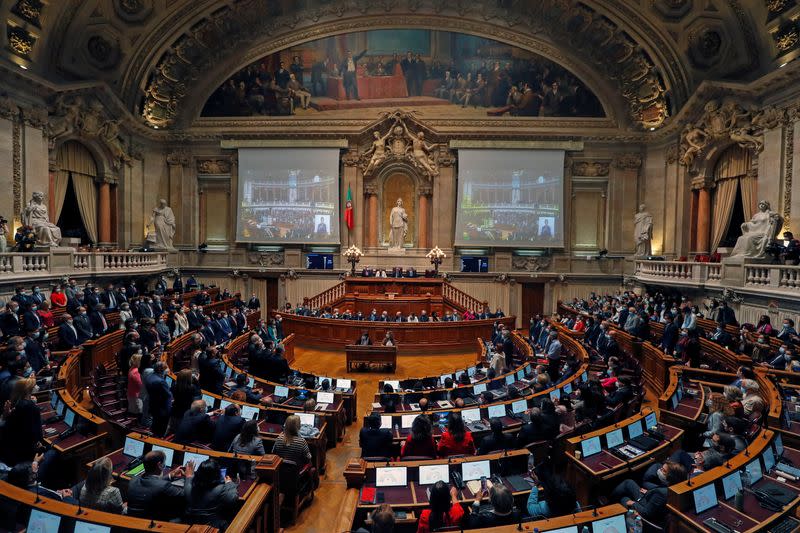Portugal's draft budget targets lower deficit despite steep slowdown

By Sergio Goncalves
LISBON (Reuters) -Portugal unveiled its draft 2023 budget on Monday, projecting a steep slowdown in economic growth with high energy and food prices expected to weigh on private consumption, but still promising to further slash the public deficit.
The document that the government submitted to parliament, where the ruling centre-left Socialists have a working majority, sees gross domestic product expanding by just 1.3% in 2023 after 6.5% growth this year.
The administration said the budget "comes in a demanding context, heavily marked by the consequences of the Russian invasion of Ukraine", but the proposed spending plan "offers stability, trust and commitment", and leaves leeway to deal with more adverse scenarios.
Finance Minister Fernando Medina said Portugal would start taxing windfall profits of oil and gas firms in line with the recent decision by the European Union, and apply a 28% tax on profits from cryptocurrencies held for less than one year.
The government will trim taxes for workers in the two lowest income brackets, while pensions will be raised by 3.5-4.5%.
Inflation running at three-decade highs and macroeconomic and geopolitical uncertainties after Russia's Feb. 24 invasion of Ukraine are putting the brakes on European economies, leading countries to lower their economic forecasts for next year.
This year, Portugal has seen the negative impacts of soaring inflation and rising interest rates partially offset by a strong jobs market, the savings accumulated during the COVID-19 pandemic and government measures to support the economy.
The government expects EU-harmonised inflation in Portugal to slow to 4% next year from 7.4% in 2022.
Now the government expects private consumption, which accounts for nearly two-thirds of GDP, to grow by just 0.7%, compared to 5.4% in 2022.
Export growth is projected to slow to 3.7% from this year's 18.1%, but investment is seen eking out a slightly stronger increase of 3.6%, after 2.9% this year, supported by public investment with funds from the European recovery plan.
Despite the economic slowdown, the fiscally prudent government hopes to cut the budget deficit to 0.9% of GDP next year from 1.9% in 2022, while public debt should finish next year at 110.8% of GDP after a projected 115% this year.
The debt estimate for this year is lower than the government's previous forecast of about 120%.
(Reporting by Sergio Goncalves; Editing by Andrei Khalip, Nick Macfie and Andrea Ricci)

 Yahoo Finance
Yahoo Finance 